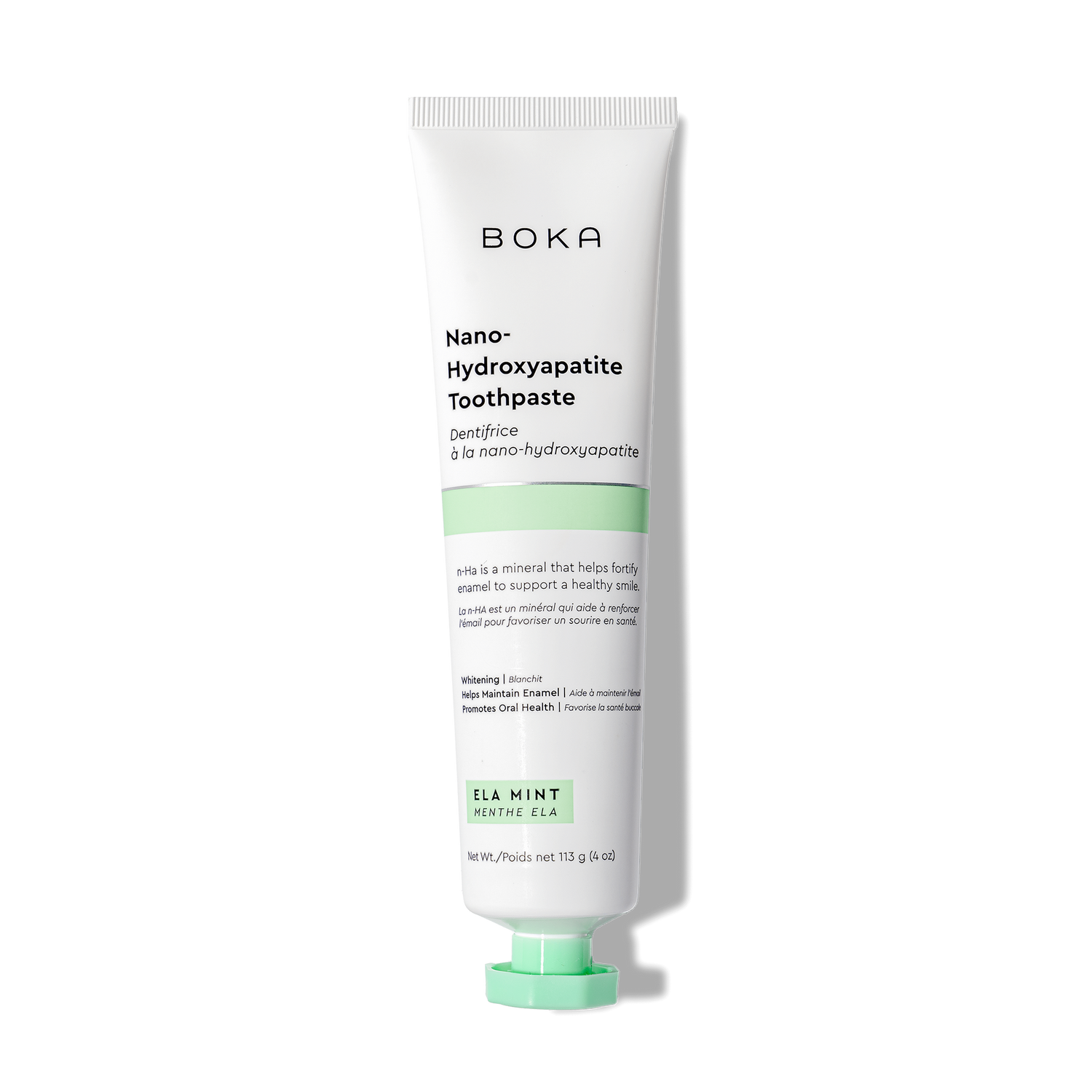Picture this: it’s a hot day, you’ve just poured yourself an ice-cold beverage, you go ahead and take a huge swig and — ouch! A jolt of pain is sent right through your teeth. We’ve all been there.
Tooth sensitivity can stem from a variety of causes and can be a real pain to deal with. The good news is you may be able to lessen this discomfort simply by selecting the right mouthwash.
In this article, we’ll be looking at ways to combat tooth sensitivity through your mouthwash choices. There are a variety of ways that finding the right mouthwash for you can help you in all aspects of oral health.
Today, we will be covering:
- Understanding Your Sensitivity
- Key Ingredients for Sensitive Teeth
- The Importance of Alcohol-Free Formulas
- Choosing the Right Mouthwash
- Using Mouthwash Effectively for Sensitive Teeth
- Additional Tips for Managing Sensitivity.
Let’s go ahead and jump right into it!
Understanding Your Sensitivity
Not all tooth sensitivity is the same. If you are suffering from tooth sensitivity, it could be thermal, chemical, or any other number of types. The first step in combating your tooth sensitivity is understanding it.
Consulting with a dentist is the best way to get more information on your type of tooth sensitivity and how best to treat it. This can also help to inform your mouthwash choice to lessen tooth sensitivity.
If you are suffering from tooth sensitivity in any capacity, booking in with your dentist is an essential first step as it will help you understand what the issue is and exactly what you are dealing with. This in turn will inform all future decisions you make when managing your tooth sensitivity.
Key Ingredients for Sensitive Teeth
There are a few key ingredients that may be able to ease the symptoms of sensitive teeth. When selecting a mouthwash, it is a good idea to check for these ingredients as they are known to be a good fit for those suffering from tooth sensitivity.
Hydroxyapatite
Hydroxyapatite is a mineral that occurs naturally in teeth and is effective in remineralizing enamel to combat sensitivity. This is a great ingredient in mouthwash as it can help your teeth get the protection they need against sensitivity.
Potassium Nitrate
Potassium nitrate is another great ingredient to look for in your mouthwash as it can work to desensitize nerves and reduce pain. This can often provide immense relief from tooth sensitivity.
Sodium Fluoride
Another key ingredient found in some mouthwash that can help with tooth sensitivity is sodium fluoride. This can work to strengthen enamel and prevent any future sensitivity from occurring.
The Importance of Alcohol-Free Formulas
What many people don’t realize when using their mouthwash is that there is a high likelihood that it contains alcohol. This can is for a variety of reasons, such as antiseptic properties and flavoring.
However, alcohol can irritate sensitive teeth and worsen discomfort. For relief from sensitive teeth, it is a good idea to opt for an alcohol-free mouthwash.
There are a variety of great mouthwash brands out there that are entirely alcohol-free, so be sure to check out the ingredients list next time you pick up a mouthwash to ensure that it doesn’t contain any alcohol.
Choosing the Right Mouthwash
Selecting the right mouthwash for you is vital when it comes to combating and preventing tooth sensitivity, but finding the best ones can be such a hassle. That’s where we come in. We’ve compiled some great mouthwash brands that may just be the perfect fit for you.
Boka Restore Mouthwash Tablets
In an innovative chewable tablet form, Boka’s mouthwash tablets are a unique and convenient option for a mouthwash that isn’t going to cause discomfort. The star ingredient of these tablets is hydroxyapatite, which has countless benefits for sensitive teeth such as protecting, restoring and re-mineralize your enamel.
You can also look forward to fresher breath, a healthier oral microbiome, and a positive impact on the planet – these tablets are eco-friendly!
Sensodyne
As the name suggests, Sensodyne is another mouthwash that is a good fit for those with sensitive teeth. This mouthwash utilizes the key ingredients of potassium nitrate and sodium fluoride to prevent decay, sooth tooth sensitivity, and freshen your breath.
Colgate Sensitive
Another popular mouthwash brand that is suitable for sensitive teeth is the Colgate Sensitive mouthwash range. This mouthwash includes ingredients such as sodium lauryl sulfate and potassium nitrate to keep your teeth clean and strong while soothing sensitivity.
Listerine Sensitivity
Listerine Sensitivity is a great mouthwash for those struggling with tooth sensitivity. With the key ingredients of sodium fluoride and potassium nitrate, this mouthwash is known for being soothing on teeth while still providing all the benefits that are expected of a mouthwash.
Using Mouthwash Effectively for Sensitive Teeth
While most mouthwash brands will provide instructions on the bottle, there are still some tips that you should know if you are using mouthwash as someone with sensitive teeth.
The first thing to keep in mind is when you are using the mouthwash. We don’t just mean using it twice a day – though this is recommended for optimal results – but when you are using it in relation to your tooth brushing routine.
It is a good idea to wait for a few minutes after brushing your teeth before using any mouthwash. This is because mouthwash can often wash away the toothpaste on your teeth, negating many of its effects.
Another thing to consider is how soon after using your mouthwash you are rising with water. Again, you should aim to wait a few minutes before rinsing your mouth out with water in order to get optimal benefits.
Finally, the duration of swishing. While most mouthwashes will include instructions on this somewhere on the bottle, around 30-60 seconds is generally an appropriate amount of time to switch your mouthwash for the best results.
According to Dr. Anjum BDS, MDS, “the alcohol-free mouthwash choice offers long-lasting protection and is specially made for sensitive teeth. Some of the mouthwash free of alcohol contains potassium nitrate, which soothes nerve endings and successfully lessens tooth sensitivity.”
Additional Tips for Managing Sensitivity
Looking for some alternative ways to manage your tooth sensitivity? You’ve come to the right place. Here are some of our top tips for managing sensitivity that may help you in your oral health journey.
Avoid Acidic Food and Drinks
Acidic foods and beverages are known to cause issues when it comes to sensitive teeth. These acids can gradually dissolve outer layers of enamel, leading to increased tooth discomfort and sensitivity.
It is a good idea to try and avoid highly acidic food and drinks, or at the very least avoid brushing your teeth directly after consuming them, as this can spread the acid around further.
Use a Soft-bristled Toothbrush
One key way to manage tooth sensitivity is by using a soft-bristled toothbrush. This is a particularly good idea for those who are noticing increased discomfort or sensitivity while brushing.
Soft-bristled toothbrushes such as the ones from Boka can help to relieve some of the symptoms of tooth sensitivity.
Salt Water Rinse
If you are looking for instant relief from tooth discomfort and sensitivity, you can try a salt water rinse. To do this, simply add 1-3 teaspoons of salt to a cup of warm water and swish it around in your mouth for at least 10 seconds.
A salt water rinse can help to stop bacterial growth and reduce plaque and inflammation. This is a great technique for those wanting quick relief from the symptoms of tooth sensitivity.
Avoiding Abrasive Toothpaste
One factor that may be worsening your issues with tooth sensitivity is your toothpaste. Abrasive toothpaste can often irritate the teeth and gums, leading to increased discomfort and sensitivity.
Using a less abrasive toothpaste is a great way to manage the symptoms of tooth sensitivity. Toothpastes with gentle ingredients, such as the ones over at Boka, can be a great pick for those wanting to avoid more abrasive toothpastes.
Maintain Regular Dental Checkups
If you are suffering from any oral health issues – or even if you aren’t – it is always a good idea to visit the dentist regularly to get standard checkups. This will help you to monitor your tooth sensitivity and oral health.
If you are experiencing any intense oral pain or serious concerns, it is important that you book in with a dentist as soon as possible. They will be able to help you find a plan to manage your tooth sensitivity or oral discomfort moving forward and can potentially recommend products that will work best for you.
Conclusion
While tooth sensitivity can be endlessly frustrating, there are ways that you can deal with it. Understanding your sensitivity, choosing a mouthwash with appropriate ingredients, and using it correctly can help you manage the symptoms of tooth sensitivity.
Brands such as Boka offer toothpastes, brushes, and mouthwashes that may be able to help you reduce your tooth sensitivity and irritation and get your oral health on the right track.
So, get out there and find the mouthwash that is going to work best for you and help to combat your tooth sensitivity so you can get back to enjoying your favorite foods and drinks – without the discomfort.

